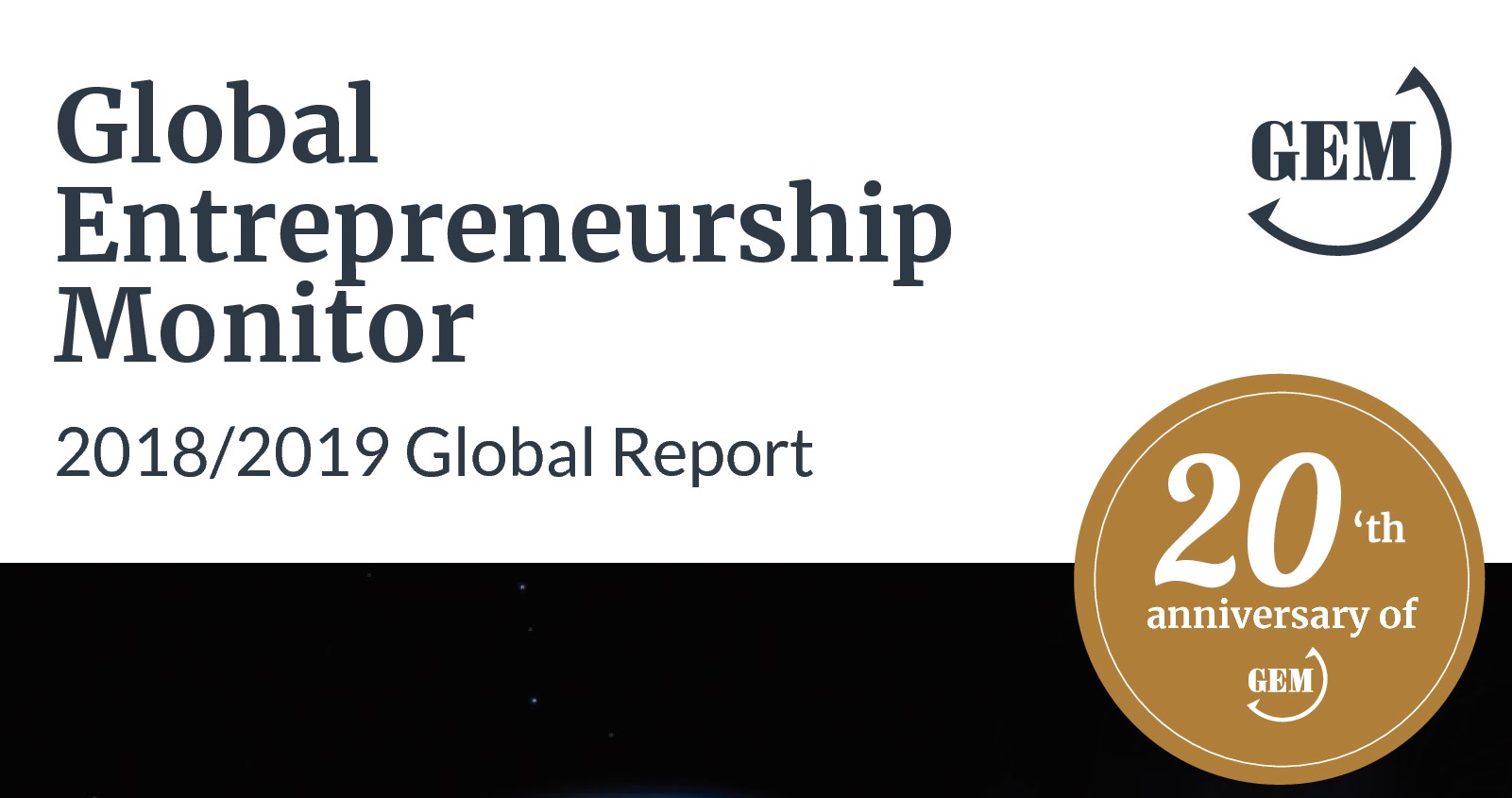On 21st January 2019 we released the GEM 2018 / 2019 Global Report, celebrating GEM’s 20th annual data collection cycle.
This means twenty years of consistently collecting primary data among the adult population in many countries across the globe. GEM produces indicators on entrepreneurial mindsets, entrepreneurial activity and conditions for entrepreneurship. So far, GEM has collected data in more than 100 economies. This has accumulated to a dataset with some three million data points.
Academic research based on GEM data has emerged rapidly with at least 650 academic articles published in the past fifteen years. It has helped to better understand links between institutions, entrepreneurship and economic development and well-being.
The 2018 / 2019 report includes 48 economies and showcases ‘entrepreneurship of all kinds’: the importance of different types of entrepreneurs for society. These range from family business entrepreneurs, innovative entrepreneurs and entrepreneurial employees to solo entrepreneurs and entrepreneurs in the gig economy. Furthermore, data on entrepreneurial attitudes and mindsets, as well as national conditions for entrepreneurship feature in the report.
Thus, using all these indicators, policy makers and other stakeholders can diagnose the existing profile of entrepreneurship in their economy, relative to others, and can come up with next steps to enhance entrepreneurship in the desired direction.
This year GEM explored the involvement of individuals (aged between 18-64) in platforms that facilitate the gig and sharing economy in 27 economies. Countries that show the highest rates (over 10%) are Republic of Korea, Israel, Chile, Ireland and the United States. GEM finds that in many of the 27 countries individuals active in the gig economy exhibit higher intentions to start a business than those who are not active in the gig economy. They may use the gig economy as a stepping-stone to get their own business started. At the same time, debates in various countries reveal concerns when it comes to low-paid gig work and the limited protection these workers have access to.
The report includes summary sheets for each economy. These sheets provide a glance of the entrepreneurial profile. How does, for example, entrepreneurial employee activity (intrapreneurship) compare to other countries? What about the (self-perceived) entrepreneurial mindsets? How do experts in the economy rate the conditions for entrepreneurship?
Have a look at the new report, and consult the various GEM National and Special Topic reports for more information!
Niels Bosma, Ph.D.
Acting Chair of the Board of the Global Entrepreneurship Research Association

